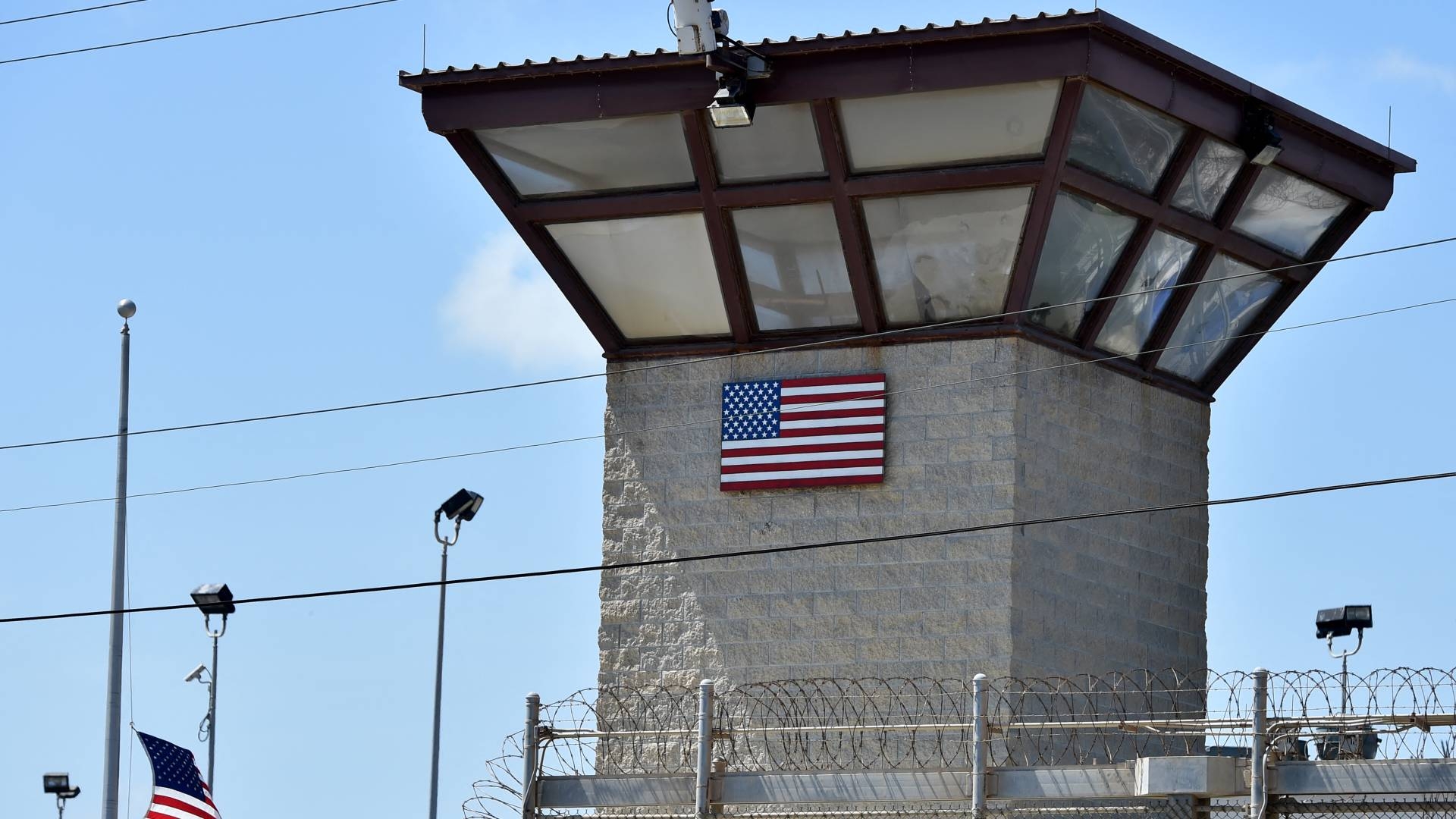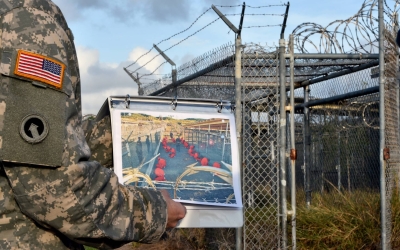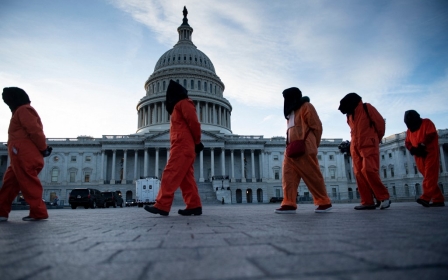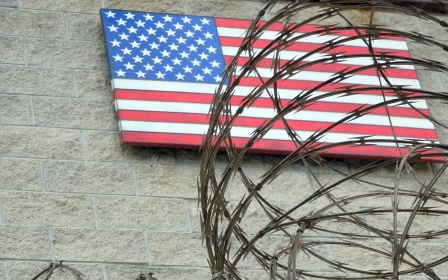Guantanamo: Biden rejects using torture-obtained testimony in trial of Saudi prisoner

The Biden administration has said it will no longer cite a Saudi prisoner's statements obtained through torture in his death-penalty case currently being pursued by a military commission at Guantanamo Bay.
In a 37-page filing submitted on Monday in the US Court of Appeals for the District of Columbia Circuit, the Justice Department said the law governing military commission trials at Guantanamo Bay "prohibits the admission of statements obtained through torture or cruel, inhuman, or degrading treatment at all phases of a military commission".
It is a reversal from the position of the former chief prosecutor of military commissions, Brigadier General Mark Martins, who argued last year that such evidence could be used in pretrial proceedings before a jury was chosen. Martins left the job last September over disagreements with the Biden administration.
The individual at the centre of the case is Abd al-Rahim al-Nashiri, a Saudi man who is one of the "high-value detainees" identified by the US government.
He is accused of plotting al-Qaeda's suicide bombing of the US Navy destroyer Cole off the coast of Yemen in 2000, which killed 17 US servicemen.
New MEE newsletter: Jerusalem Dispatch
Sign up to get the latest insights and analysis on Israel-Palestine, alongside Turkey Unpacked and other MEE newsletters
'There is no question that the government's decision to subject petitioner to enhanced interrogation techniques has created ... difficult issues'
- US Justice Department
Nashiri was captured two years later and spent four years in CIA custody, where he was subjected to waterboarding, isolation, sleep deprivation and mock executions. For a decade, his case has been bogged down in pretrial proceedings as the court tries to deal with the legacy of the torture.
The challenge over the use of torture-linked evidence arose out of a classified government filing, where prosecutors quoted a statement Nashiri made during a particularly brutal CIA interrogation in order to end his defence team's quest for information about a 2015 drone strike in Syria that killed Mohsen al-Fadhli, a senior al-Qaeda figure.
Nashiri's lawyers were exploring a possible defence argument that the US had already killed the more senior plotters of the Cole attack. The prosecutors urged the judge to reject that argument, citing that Nashiri had told CIA agents that Fadhli had not been involved in the 2000 attack.
While his lawyers said the law prohibited the use of Nashiri's statement, as it was obtained through torture, the military judge ruled that there was an exception for the period of pretrial proceedings.
The case has been seen as a test of how civilian courts viewed the limits on the use of evidence derived through torture at the military commissions.
"There is no question that the government's decision to subject petitioner to enhanced interrogation techniques has created, and will continue to create, difficult issues related to discovery, admissibility of evidence, and other challenges petitioner may raise," the government's brief said.
The brief was first reported by The New York Times.
Leaving the door open
The government's filing, however, did not end the possibility that another US administration could interpret the law differently, and try to use evidence obtained through torture.
"If a dispute arises regarding any past orders or any future attempt to admit such statements, the issue should be adjudicated in the first instance, in its specific concrete context, in the military courts below," the brief said.
Defence lawyers in the case said they were troubled by the filing's language which leaves the door open for a future administration to reverse course given the longevity of the proceedings, which are now in their fourth US administration.
"It is a cause for concern," Michel Paradis, an appellate lawyer for Nashiri, told The New York Times. "The Trump administration took a very different view of torture than the Biden administration does. And this pleading leaves open the discretion to change their position."
Paradis also issued concern at the government's disclosure in the filing that a war court prosecutor, in a review of 100,000 pages of secret filings, discovered another statement by Nashiri, obtained at a CIA black site, that was invoked by prosecutors.
Many legal experts have said that the military commissions process at Guantanamo Bay have been an "abject failure", and have called on the US to put an end to the proceedings.
"It's time to actually just acknowledge that the experiment has been a predictable failure and to put an end to the commissions," a Senate Democratic aide previously told Middle East Eye.
The Biden administration has repeatedly stated it aims to close the prison. So far under Biden, only one prisoner has been transferred back to his home country of Morocco. While 39 detainees remain, 18 have been cleared for transfer.
Experts have criticised Biden for not doing enough to close the detention centre, saying he has all the tools at his disposal to do so.
Middle East Eye delivers independent and unrivalled coverage and analysis of the Middle East, North Africa and beyond. To learn more about republishing this content and the associated fees, please fill out this form. More about MEE can be found here.





